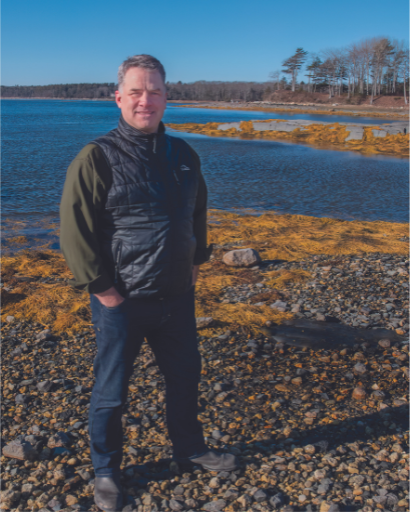Dreaming, Designing, Building, and Living Life
Why would a successful business owner want to publicly share his story of addiction and recovery?
Because it’s about hope—and smashing stereotypes.
Senecal Construction founder Matt Senecal will reach 11 years of sobriety on March 1, 2024. “Addiction affects anybody—police officers, lawyers, doctors, painters, craftsmen,” he says. “And we’re all telling the same painful story. My motivation for doing this is to let people know that there is hope. I have lived more life in the last
decade than I ever lived prior.”
His story starts like so many others he’s heard at 12-step meetings: He started drinking young, when he was 10 or 11, hanging out with older kids. “The first time I drank, I felt like I had arrived and was finally accepted,” he says. “I continued chasing that feeling for the next—oh, close to 30 years. I got away with a lot in school because I was an athlete.
Looking back on it, I learned a lot about stereotypes. I was in the jock crowd. And then there were ‘the druggies,’ if you will—but the jocks were more active in using drugs and alcohol, and we got away with a lot more.”
Matt was so successful in lacrosse at Morse High School in Bath that he was offered a full college scholarship. “Then, while I was at college, drugs and alcohol completely took over,”
he says. “I couldn’t perform my basic tasks, like actually going to class and studying. In year two, after the lacrosse season, I was asked to leave and from there my
use really kicked off.”
With college in the rearview mirror, Matt turned to what he knew: construction. He’d grown upbuilding side by side with his father, and at the age of 20, he started a construction company.“People would say that I worked hard and played hard,” Matt says. “I hid behind that like a badge of honor.”
By then he was using cocaine. Though he worried about the possibility of going to jail—of having a legal problem—he didn’t believe he had a physical problem. How could he, when he was a husband, a father, a successful business owner, and the state’s longest-running member of Business Networking International?
“I measured who I was based on how big my boat was, how many houses I had, my place at Sugarloaf,” Matt says. “Then, around 2008-2009, the market crashed and my net worth was cut by more than half. I was looking at the possibility of bankruptcy and foreclosure, and I had no identity left because my stuff was being taken away, and that accelerated my use.”
He was able to get sober a couple of times, including seven months when he was training hard for a Tough Mudder competition. “That became my addiction,” Matt says, “and at the end of the race, they gave me a beer and I was right back to where I left off.”
Another time he tried to quit, seeing both his primary care physician and psychiatrist, who separately prescribed Valium and Xanax.
“Under the influence of both of those and alcohol, I was going to take my own life,” Matt says. “Thankfully there was some intervention, the gun misfired or was redirected and went through the ceiling of my garage. My wife and kids were scared and ran to a neighbor’s house. I passed out on my bed, but police called it a standoff. Charges for that allegation were dropped within 32 hours, but that’s something that follows me even though I wasn’t convicted. That really brought me to my bottom.”
The illusion of having everything “under control” was completely shattered. Matt’s high school football coach showed up and brought him to a 12-step recovery meeting—something that is now a permanent part of his life.
“In recovery, I learned to love myself for who I am—not for my stuff—and I continue to grow as a person,” Matt says. “I didn’t know it was possible to enjoy life.
I never thought I could ski without aprés-ski, go fishing, or camping without drinking. And I’ve learned that life is so beautiful and enjoyable—whether I’m boating, canoeing, fly fishing, skiing, or developing a trail system on my property in the woods in Brunswick. I feel gifted every day in all my relationships. I’m definitely more patient, more loving, more understanding.”
Matt’s professional relationships improved too once he was ready to surround himself with employees who would hold him accountable. “We’ve built an amazing team,” he says.
Senecal Construction has fifteen employees and, on any given day, there may be upwards of 100 people, including contractors, working on Senecal projects. The company’s value has more than tripled in the nearly eleven years since Matt has been sober.
But, for Matt, it’s no longer all about the numbers or the markings and trappings of success. It’s about dreaming, designing, and building beautiful, sustainable homes—just as he’s continually working on dreaming, designing, and building a beautiful, sustainable life. And that has included reviving a childhood dream.“I always enjoyed drawing houses, from a young age,” Matt says. “My mother’s boyfriends told me that I could never be an architect because I wasn’t strong in math. Well, our firm currently has nine homes under design. I couldn’t have accomplished that—any of this—without sobriety. I wouldn’t be here. And I don’t take that for granted.”



